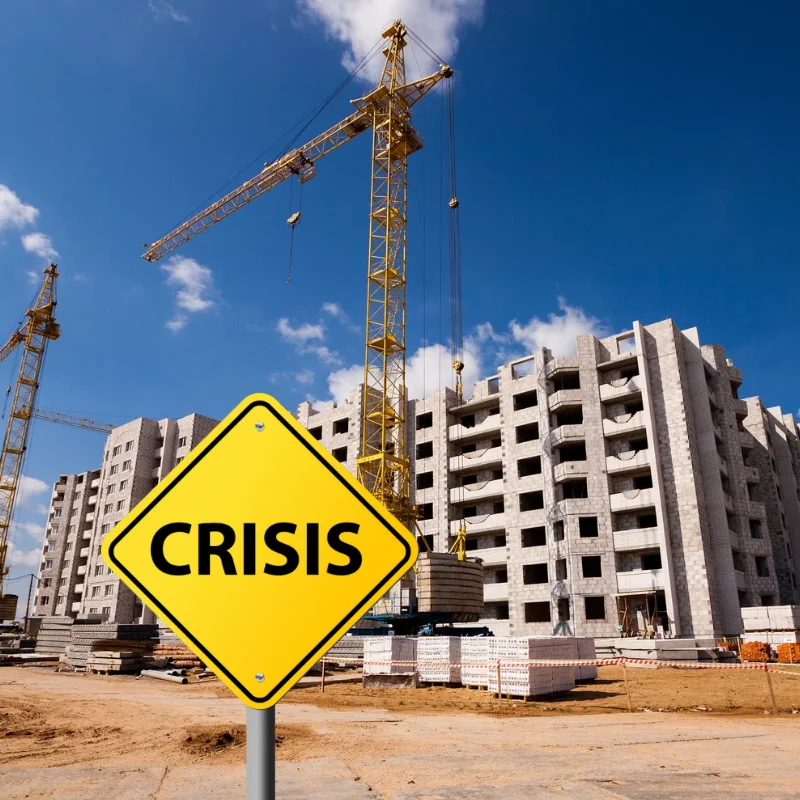How can Germany’s construction sector recover from a crisis that has lasted for five years?
In 2025, the German Construction Industry Association (BAUINDUSTRIE) presented its proposals to address the key challenges of the construction industry and ensure the sustainable development of Germany’s infrastructure.
1. Structural Changes in Ministries
BAUINDUSTRIE proposes the creation of two powerful federal ministries: “Construction and Climate Protection” and “Mobility and Infrastructure.” This consolidation aims to improve coordination of projects related to climate policy and infrastructure, eliminating redundancies and enhancing management efficiency.
2. Reducing Bureaucratic Burdens
To stimulate entrepreneurial activity, bureaucratic barriers must be reduced. This includes simplifying regulatory requirements and optimizing procedures, allowing companies to adapt more quickly to changes and implement innovations.
3. Affordable Housing and Green Solutions
To ensure affordable housing and promote environmentally friendly technologies, BAUINDUSTRIE recommends:
- Adequate and stable funding. Providing reliable and sufficient subsidies to support housing construction.
- Reducing construction standards and accelerating digitalization. Simplifying regulations and actively integrating digital technologies to increase construction efficiency.
- Socially responsible renovation. Conducting eco-friendly renovations of existing buildings with a focus on social aspects.
4. Promoting the Circular Economy in Construction
To enhance the sector’s sustainability, the use of recycled construction materials must be increased. This requires building trust in the quality and reliability of such materials among market participants.
5. Modernizing Transport Infrastructure
BAUINDUSTRIE emphasizes the importance of:
- Ensuring long-term financing. Implementing multi-year financial instruments for all types of transport.
- Strengthening road infrastructure. Preventing bridge deterioration and ensuring the reliability of the road network.
- Enhancing railway system efficiency. Undertaking decisive upgrades and expansion of railway infrastructure.
- Developing waterways. Reducing the burden on roads and railways by utilizing inland waterways.
- Simplifying planning and approval processes. Cutting bureaucratic procedures and fairly distributing risks among project participants.
6. Implementing the Energy Transition
To successfully transition to sustainable energy, it is essential to:
- Modernize thermal and energy networks. Adapting infrastructure to new requirements and technologies.
- Coordinate the development of charging and broadband infrastructure. Ensuring synchronized expansion of electric charging stations and high-speed internet.
- Create a national operator registry. Protecting underground infrastructure and enhancing network security.
7. Digital Transformation in Construction
- Full digitalization of construction processes. Implementing digital technologies at all stages of construction.
- Ensuring data sovereignty. Balancing data sharing with the protection of confidential information.
8. Fair Legal Frameworks
BAUINDUSTRIE highlights the need for:
- Strengthening public procurement. Establishing partnerships to fully utilize construction expertise.
- Optimizing construction contract law. Reducing conflicts and ensuring fair conditions for all parties.
- Protection against dumping offers. Applying European standards to prevent unfair competition.
9. Increasing the Attractiveness of International Construction
To strengthen Germany’s position in the international construction market, the following measures are proposed:
- Linking development with foreign economic policy. Increasing infrastructure project funding within international cooperation frameworks.
- Participation in the EU Global Gateway initiative. Engaging Germany and Europe in global infrastructure projects.
- Supporting Ukraine’s reconstruction. Utilizing German expertise and technologies for sustainable rebuilding efforts.
These BAUINDUSTRIE initiatives aim to establish a stable and innovative construction sector capable of effectively responding to future challenges and ensuring sustainable infrastructure development.
Source: www.bauindustrie.de
